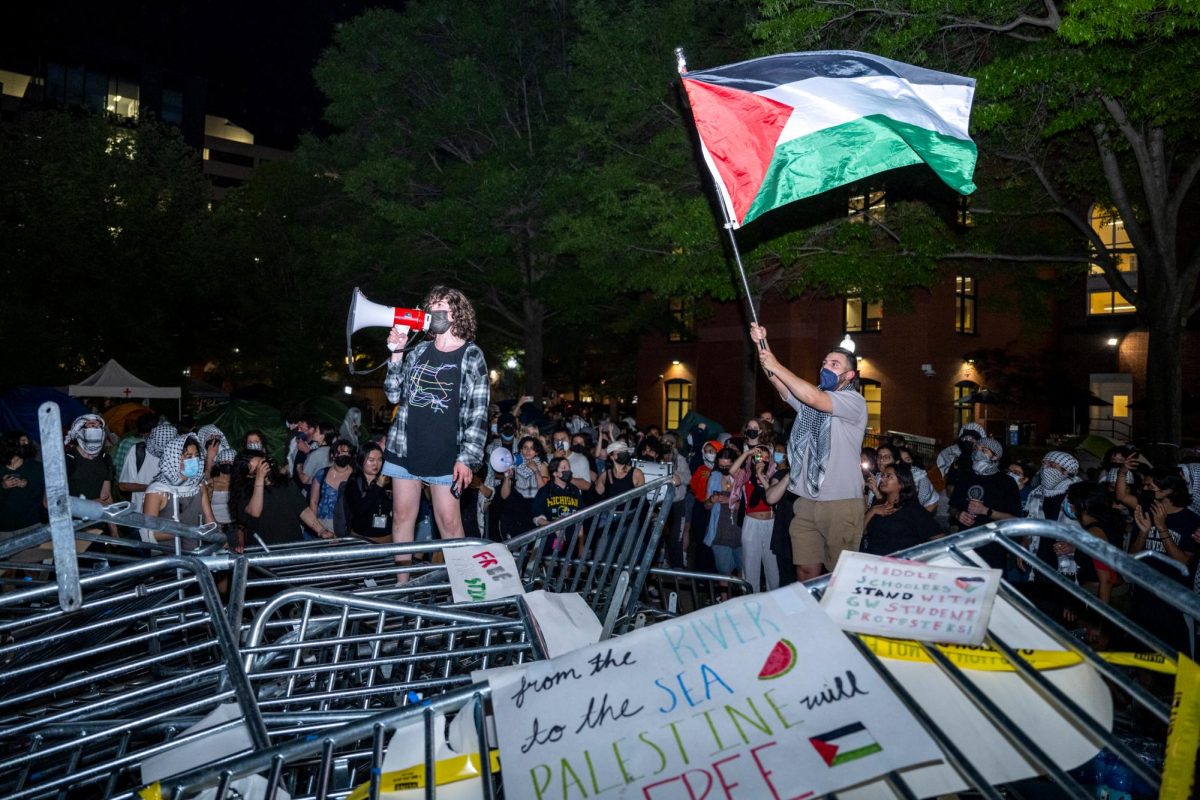Olympic committees are eyeing GW’s Smith Center as an event venue for the 2012 Summer Olympics if the District wins its bid to host the Games.
The Smith Center would host badminton if the U.S. Olympic Committee selects the nation’s capital among seven other cities. D.C. and Dallas are considered the top two bids by some newspapers and analysts around the country.
The Chesapeake Regional 2012 Coalition, the group in charge of preparing the Washington-Baltimore bid, chose other area universities to host competitions, including swimming and volleyball.
The University of Maryland would be the site of the Olympic Village and would host team handball and indoor volleyball events. Howard University would also get some volleyball games, and George Mason University would host tae kwon do, judo, wrestling and aquatic events.
“We’re excited and we’re hoping it’s going to happen,” said Tony Vecchione, assistant director for facilities and operations at GW. “It’s a long way away, we’re taking it one step at a time.”
He said the D.C. committee chose the Smith Center rather than GW’s new Health and Wellness Center because it is a competition venue, and the new building is a recreational venue unequipped for spectator events.
The Smith Center, which holds 5,000 people, has entrances and exits that are better suited to accommodate crowds, he said.
College Park is an ideal site for the Olympic Village because the campus is within a 45-minutes drive from of all events, said Pat Perfetto, director of conferences and visitor services at the University of Maryland.
Maryland has 9,000 beds available now, and 6,000 more would be constructed permanently or temporarily by 2012, Perfetto said. The grassy center of campus known as “the mall” would be converted to an international zone, a place to entertain athletes.
“That changes the footprint of campus a little bit,” he said.
Perfetto said Maryland would adjust its summer class schedule, university employees could handle jobs “in the Olympic effort” and some indoor administrative space could be taken over. He said research would continue despite millions of new visitors.
“You can’t put research on hold, that needs to be supported,” he said.
George Mason officials said they would build a temporary 20,000-seat facility for swimming, diving and synchronized swimming events that would be torn down after the Olympics. The university would use its aquatic center as a warm-up and practice area for athletes.
George Mason would host judo and tae kwon do in the university’s physical education building, and offer wrestling in the 10,000-seat Patriot Center.
Tom O’Connor, assistant vice president and director of athletics at George Mason, said the school has hosted international events in the past. Its capacity for seating, transportation and parking qualify it as an Olympic venue, he said.
“I’m really excited about the possibility of this happening,” he said. “It’s great for the university, great for the city.”
According to regional committee literature, the Washington-Baltimore region boasts the third-largest inventory of hotel rooms in the U.S., after Las Vegas and Orlando, with 100,093 rooms in 623 hotels. The committee also cites three nearby international airports and D.C.’s Metro system as strengths to the bid.
“We readily have in this region almost all of the resources they would need so they wouldn’t have to build as much,” Perfetto said.
D.C. offers two options for opening and closing ceremonies. If the Olympic Committee prefers a traditional event, it could choose to use a new stadium that would stand next to RFK Stadium. The D.C. bid also recommends hosting the ceremonies on the National Mall, with simultaneous celebrations on Baltimore’s Inner Harbor.
The 1996 Olympics Games brought 5.5 million visitors and more than $5 billion in revenue to Atlanta, according to the D.C. bid.
U.S. Olympic Committee will choose the nation’s bid by fall 2002. The USOC visited the proposed Washington-Baltimore sites two weeks ago for evaluation. The committee is also reviewing New York, Los Angeles, Dallas, Houston, San Francisco Cincinnati, Orlando and Tampa, Fla., this summer.
“It’s pretty competitive when you think about on the world level bringing the Olympics to the U.S. alone,” Perfetto said.
He said D.C. is a high-profile location because it is a capital city, and also has economic and safety reasons behind its bid.
“People know of Washington, D.C. as the center of government for the U.S,” Perfetto said. “When you go to the capital of a country as large as the U.S, you get the world’s attention.”
Universities with a stake in the D.C. bid will have their eyes on the competition for the 2008 Summer Olympics among Toronto, Paris and Bejing.
“Toronto has a very strong bid,” Perfetto said. “If they choose Toronto for 2008, we know they’re not coming back to the same continent for 2012.”
The international committee will announce the 2008 site July 13 and select the 2012 Olympic host city in 2005.
-Katie Warchut contributed to this report






